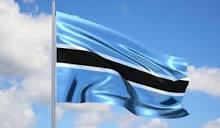
BY Richard Muponde
ABOUT 620 victims of Gukurahundi and post-independence political violence who are sheltered at Dukwe Refugee Camp in Botswana will be repatriated back home at the end of the month, the Southern Eye on Sunday has established.
The repatriation, which was initially scheduled for early this year, was shelved amid reports that some of the victims had backtracked on plans to return home fearing for their safety.
Intervention of the United Nations High Commissioner for Refugees (UNHCR) stopped the repatriation to ensure that the returnees were doing so voluntarily in accordance with international law.
Reports from the neighbouring country, however, revealed that over 600 refugees have volunteered to come back home.
Their repatriation is reportedly scheduled to begin end of this month or early November after Botswana’s elections slated for end of the month.
The Zimbabwean refugees who are part of 700 people living at Dukwe Refugee Camp, about 120km from Francistown, are expected to be repatriated via the Plumtree Border Post.
In April only a family of four arrived, amid reports that the rest of the survivors were then reportedly reluctant to come back, arguing that President Emmerson Mnangagwa’s government could not be trusted because it was the same Zanu PF which had persecuted them.
- Chamisa under fire over US$120K donation
- Mavhunga puts DeMbare into Chibuku quarterfinals
- Pension funds bet on Cabora Bassa oilfields
- Councils defy govt fire tender directive
Keep Reading
However, a visit to Plumtree by this publication last week on Saturday revealed that preparations were underway to receive the returnees with officials facing headaches on where to shelter them.
The receiving centre at Plumtree Border Post, which was ceded to government by International Organisation of Migration (IOM), can only house about 100 people at a time
Efforts to get a comment from the Botswana embassy counsellor dealing with the issue identified only as Mokomani were fruitless as she was said to be out of office until tomorrow.
“You can call on Monday, she is out of office on business. There is no one to attend to you regarding that matter as she is the only one dealing with the matter,” said an attendant at the embassy’s reception.
Labour minister Sekesai Nzenza was not reachable on her mobile phone and her deputy Lovemore Matuke said he was not abreast with the new development as he was not at work for some time due to an accident.
“I haven’t been at work as I was involved in an accident. I was there in the past two days, but I am not abreast with the information. I will start work on Monday,” said Matuke.
However a reliable source in the Social Welfare department confirmed that the refugees were waiting to come home soon after Botswana’s elections.
“We have been advised about the imminent repatriation and we are working on modalities to receive them,” he said.
“We were told that the repatriation was put on hold because of the electioneering in the neighbouring country.”
Dukwe Refugee Camp was established by the Lutheran World Federation in 1978 to cope with a massive influx of refugees from what was then known as Rhodesia (now Zimbabwe).
At its peak, the camp was home to more than 45 000 people, mostly fleeing oppression and racism in Zimbabwe and apartheid South Africa.
There were also refugees from Namibia as well as Angola, the scene of Africa’s longest and bloodiest civil conflict after the Portuguese left in 1975.











